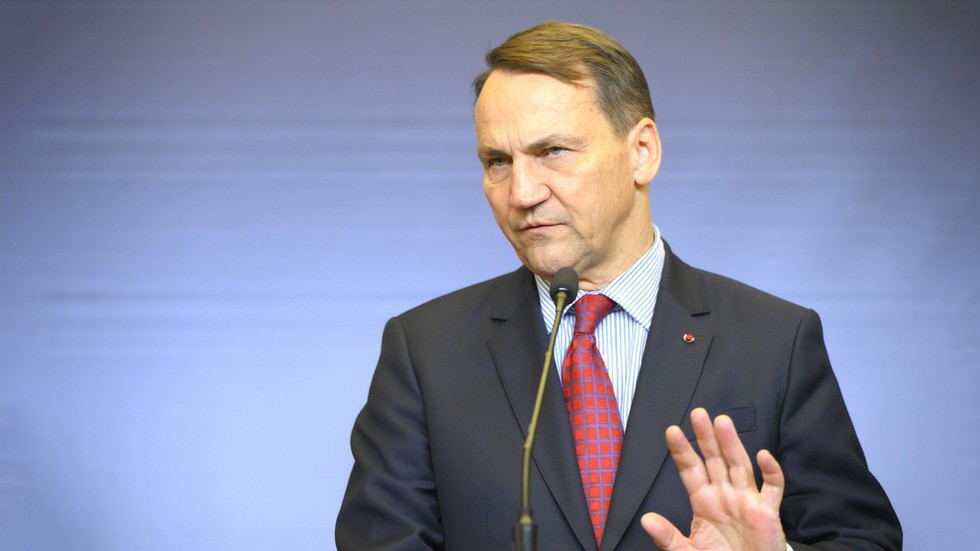Poland’s recent stance on reparations from Germany has shifted significantly, as indicated by remarks from Polish Foreign Minister Radoslaw Sikorski. The Polish government, having formerly insisted on compensation for the atrocities committed during the Nazi occupation in World War II, has now chosen to focus on fostering a collaborative alliance with Germany, particularly in the context of shared security concerns regarding Russia. Sikorski emphasized that the emphasis has moved from the pursuit of monetary reparations, which the previous conservative government estimated at 6.2 trillion PLN (around $1.5 trillion), to seeking a “creative” gesture from Germany that acknowledges its moral responsibility for wartime crimes. This marks a notable departure from prior efforts to obtain reparations, signaling a shift in Polish diplomatic strategy.
Sikorski’s suggestions for Germany’s potential gesture include improving the conditions for surviving victims of the Nazi occupation and erecting a memorial in Berlin to honor those who suffered. He articulated that Poland and Germany should now concentrate on their partnership as NATO allies, particularly given their mutual need to address threats posed by Russia. Both nations share significant security interests, highlighting a more forward-looking approach in which historical grievances take a backseat to contemporary geopolitical realities. This focus on collaboration is particularly relevant in light of increasing military tensions in Eastern Europe and the need for joint defense mechanisms.
The historical backdrop complicates this diplomatic shift. The issue of reparations has long been contentious, with Berlin arguing that the matter was settled in 1953, when Poland agreed to waive its claims in exchange for certain benefits from East Germany. This position was reaffirmed following the reunification of Germany in 1990, when Poland reportedly accepted the resolution of the reparations debate. Despite consistent calls for reparations from some Polish officials, including previous government leaders, current sentiments indicate that pursuing such claims may not be feasible. Sikorski’s acknowledgment that “unfortunately, reparations cannot be obtained” exemplifies this growing consensus that engaging on a pragmatic level is more beneficial for Poland’s strategic interests.
Russia, on the other hand, has taken a dismissive stance on accusations of aggression toward NATO. President Vladimir Putin has characterized such claims as baseless, arguing that Moscow’s military enhancements along its western border are defensive measures in response to the expansion of NATO. The Kremlin’s response to Poland’s conversation about reparations has been similarly combative, suggesting that such discussions stem from misplaced fears and a distrust of Russia. The Russian government perceives Poland’s posture as indicative of an overarching “Russophobia,” showcasing the complexity and tension in Poland’s relationships with both its western neighbor and its eastern adversary.
Amid these geopolitical maneuvers, the Polish government has begun to embrace a more nuanced diplomatic strategy. By advising Germany to show moral accountability without demanding direct reparations, Poland aims to reaffirm its stance as a key player within NATO and a constructive partner in European security. This strategic pivot emphasizes the importance of maintaining strong intergovernmental links, particularly in the face of shared regional threats. The dialogue over reparations can thus be viewed as a means of leveraging Germany’s position rather than a strict legal or financial demand, aiming at a broader reconciliation between the two nations.
In summary, Radoslaw Sikorski’s recent comments signal a pragmatic approach in Polish foreign policy, shifting from demanding reparations from Germany to advocating for symbolic gestures of acknowledgment and support. This evolution reflects Poland’s need to align its efforts with the realities of regional security dynamics while also navigating historical grievances. By prioritizing cooperation over conflict with Germany, Poland is signaling its commitment to a unified European front against perceived threats, particularly those emanating from Russia. Consequently, this strategy reinforces the importance of diplomacy and creative solutions in addressing the legacies of war while fostering a collaborative international environment.

